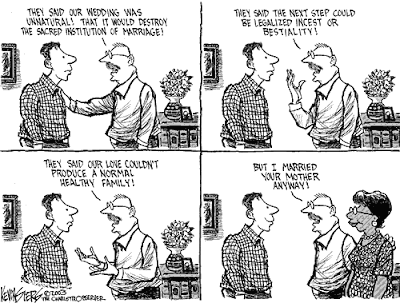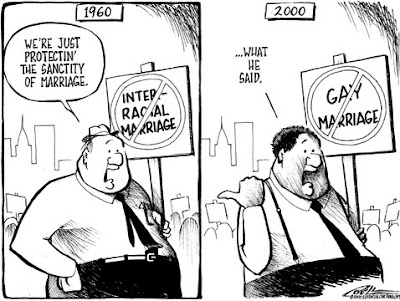
One of the main arguments for Proposition 8 is that the majority of the citizens should decide who gets to marry, and how marriage should be defined.
In 2000 61% of California voters passed a proposition that defined marriage as being between a man and a woman. This was recently overturned by the California Supreme Court as unconstitutional because the California state constitution proclaims equal rights to all citizens.
Many Californians are upset that judges could overturn a proposal that was passed by a majority of the citizens in California. This situation brings up a question of how our democracy works and how the constitutional rights of groups and individuals are protected. Who has the power to protect our rights, the majority of citizens or a few liberal or conservative judges?
When it comes to the protection of our rights, is a vote of the majority the best way? In a pure democracy the majority would rule on every issue. This is not how our government is set up to function though, and there are good reasons for that. Our constitution is designed to protect the rights of all individuals not just the majority. Many of the groundbreaking movements in our history such as the abolition of slavery, the civil rights movement, and women's suffrage would not have happened when they did if it were left up to individual states to institute these changes through a majority vote of their citizens.
Our constitution is designed to give equal rights to everyone, including the smallest minorities. We depend on judges to interpret the constitution and to objectively protect the rights of all citizens, not just the majority's rights.

This brings up another question; is marriage considered a right?
In 1967 the US Supreme Court Case Loving v. Virginia overturned laws forbidding interracial marriage. The court wrote:
"Marriage is one of the "basic civil rights of man," fundamental to our very existence and survival.... To deny this fundamental freedom on so unsupportable a basis as the racial classifications embodied in these statutes, classifications so directly subversive of the principle of equality at the heart of the Fourteenth Amendment, is surely to deprive all the State's citizens of liberty without due process of law. The Fourteenth Amendment requires that the freedom of choice to marry not be restricted by invidious racial discrimination. Under our Constitution, the freedom to marry, or not marry, a person of another race resides with the individual and cannot be infringed by the State."
The US Supreme Court has not applied this ruling to homosexual marriages at this time, however, the California State Supreme Court's ruling established that any law discriminating on the basis of sexual orientation is constitutionally suspect.
Many of the same arguments that are being used to fight against gay marriage were used to fight against interracial marriage.


Part I discussed the nature of homosexuality. I believe that the relatively recent discussion and understanding of sexual orientation in our society has led to changes in the way that we think about this issue. Homosexuality is beginning to be protected from discrimination in legal cases the same way that any other inherent trait is protected. I believe that in the not-too-distant future the law will ban discrimination based on sexual orientation the same way that it protects disabled people or people of color.
Part III Preview:
How will school children be affected by equality for homosexuals? Will traditional marriage be harmed by gay marriage?
